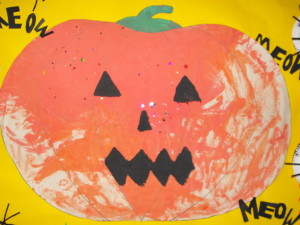As we approach Halloween with its bonfires, masks and folks dressed up, our thoughts, as ever, turn to the little ones in our lives. Dunking for apples, playing trick or treating around the neighbourhood; never to mention toffee apples, apple pies and all sorts of homemade treats (getting hungry here and that’s never good for me!! ) Small and big kids love it! Seriously though, what do we do if our child is more scared than scary, more frightened than frightening, more fearful than fearless? What do we do if every time they see someone dressed up or wearing a mask we find we have difficulty walking because we have a small person attached to our leg or behind our back?!? Thankfully there is loads we can do to help them overcome their fears…..
Ten tips to help your child overcome fears
• Listen to your child– make sure you listen why your child is afraid, or if he is too young to tell you then be sensitive to when he becomes clingy, and offer reassurance.
• Talk to your child – make sure you tell him it’s ok to be afraid; tell him of a time in your life when you were afraid and what you did to overcome your fear.
• Never belittle his fear – never tell him to “stop being a baby” or “stop being silly”. This will only make him stop sharing his fear with you.
• Model being brave – never show your child your own fear – children will copy you so if he realises that you are not afraid he will not be afraid either. Your child believes if something is safe for you it is safe for him too. If he is scared of a mask or other object, buy one, touc
h it, show him what it is made of. Allow him the opportunity, if he wants to, of touching or wearing the mask or other object too.
• Do not force your child to do something he is afraid of. Allow your child to take his own time to adjust and overcome his fears. Support him with all the love and care that you can.
• Don’t freak out every time you think the child might hurt themselves – instead, just walk to him to assist and explain what he should and shouldn’t do for ensuring safety, in a calm manner.
• Turn off the scary TV shows – (my own child was having nightmares and it turned out to be because she was watching Scooby-Do with her brother when she was too young and becoming afraid of fantasy; so we turned that show off for a few years). Also, let your child understand the difference between fantasy and reality by explaining to him, if possible, how movies and cartoons are made in a simple manner.
• Offer to walk with the child through the house/room/area that they associate with fear – Open all the doors, look under the bed; use light to show that nothing is there. If your child is frightened by sounds or shadowy images, discuss what could actually be causing these sounds in a non-judgmental way.
• Use humour to lessen the fear – Have the child describe to you the monster that he or she is imagining. Add silly things to that image, such as checkered underwear or a silly hat.
• Read books about friendly ghosts and monsters or stories of Halloween – find and read stories about other children having similar fears and how they overcame them.
Above all else, make sure to have fun!!
HAPPY HALLOWEEN!!
